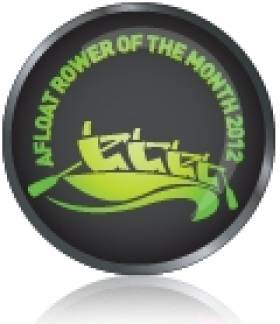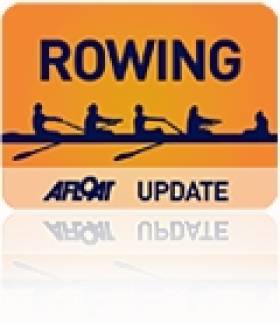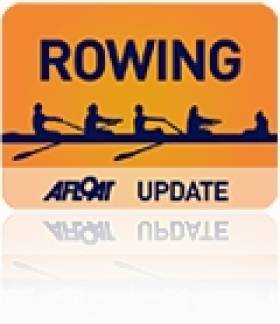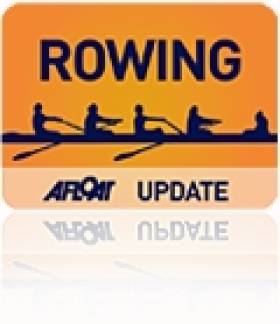Displaying items by tag: Keohane,
Keohane is Afloat Rower of the Month for June
# ROWER OF THE MONTH: John Keohane is the Afloat Rower of the Month for June. The Corkman won Division One of the men’s single sculls at Cork Regatta, his second such win in the eFlow League series. He had also won at Skibbereen Regatta. Keohane competed in the Diamond Sculls at Henley, but he was beaten by Luke Moon in difficult conditions for the lighter Irishman.
Rower of the Month awards: The judging panel is made up of Liam Gorman, rowing correspondent of The Irish Times and David O'Brien, Editor of Afloat magazine. Monthly awards for achievements during the year will appear on afloat.ie and the overall national award will be presented to the person or crew who, in the judges' opinion, achieved the most notable results in, or made the most significant contribution to rowing during 2012. Keep a monthly eye on progress and watch our 2012 champions list grow.
# ROWING: John Keohane slugged it out with the heavier Luke Moon in the Diamond Sculls at Henley Royal Regatta today but finished second, a length off the Tideway Scullers’ man. Keohane was slower off the start, but he drew level in the middle stages and even edged in front. Moon eventually took and held the lead, but he slowed in front of the enclosures and Keohane tightened the final margin.
Henley Royal Regatta, Day Two (Irish interest)
Diamond Sculls (Single Sculls, Open): R Lopez (El Salvador) bt C Williamson (Queen’s University) easily, 9:00; L Moon (Tideway Scullers’ School) bt J Keohane (Lee Valley) 1l, 9:30
Visitors’ Cup (Fours, Intermediate): Queen’s University bt Nottingham University B easily, 8:14; Durham University bt Oxford University and Isis BC 4 ¼ l, 7:55
Wyfold Cup (Fours, Club): Rob Roy bt Cork BC 4¼ l, 7:53
# ROWING: Cork Regatta provided John Keohane with a fine boost as he heads off to compete in the Diamond Sculls at Henley Royal Regatta, as the Lee Valley man beat Paul O'Donovan into second in Division One of the men's single sculls at the National Rowing Centre last night.
Helen Walshe of Three Castles won the women's single, beating clubmate Eimear Moran into second as darkness fell at the NRC. Walshe, like Keohane, thus took two of the eFlow Go Row Grand League rounds. The Division One titles in men's and women's pairs were won by St Michael's of Limerick.
#ROWING: John Keohane of Lee Valley won the men’s senior single scull at Ghent Regatta in Belgium today. The women’s single was won by the great Ekaterina Karsten. Keohane was one of a collection of Irish winners, with Three Castles impressing in the women’s events.
Ghent International May Regatta, Belgium (Selected Winners, Irish interest)
Saturday:
Men, Sculling, Quadruple – Lightweight: 1 Carlow 7:04.93.
Women, Sculling, Quadruple: Three Castles 7:20.68.
Sunday:
Men, Sculling, Quadruple – Lightweight: 1 Carlow 7:15.36. Under-23 Lightweight Double – Carlow 7:47.39. Single – Senior: Lee Valley (J Keohane) 7:32.08
Women, Eight – Junior: Methodist College, Belfast 8:02.34. Sculling, Quadruple: Three Castles 7:20.63.

































































